Retinal Vein Occlusion
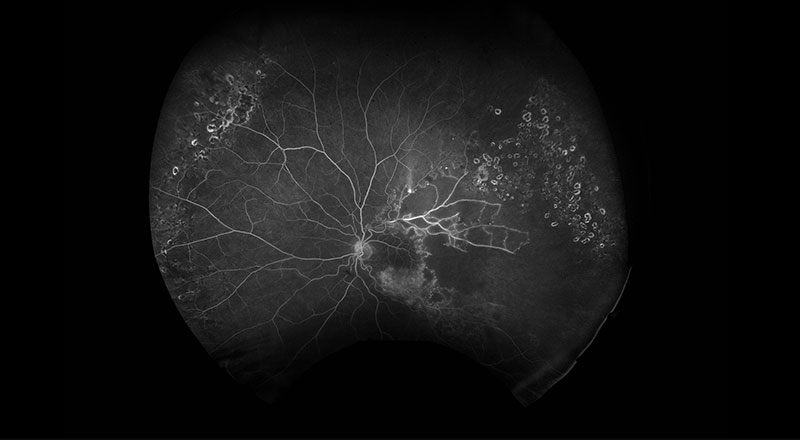 BRVO Fluorescein Angiography
BRVO Fluorescein Angiography
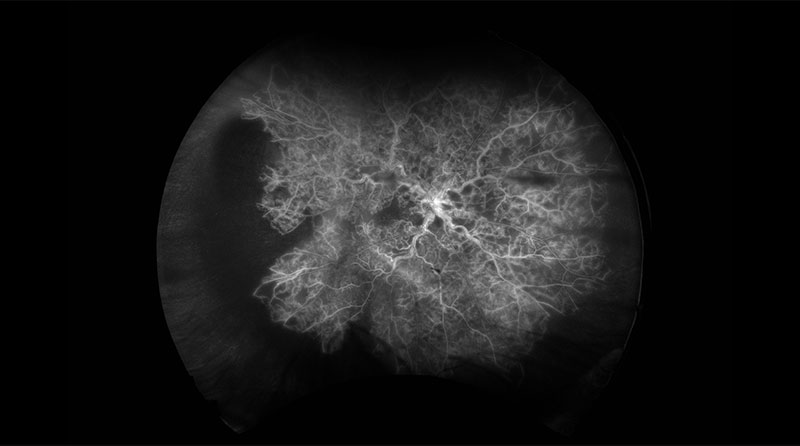 CRVO Fluorescein Angiography
CRVO Fluorescein Angiography
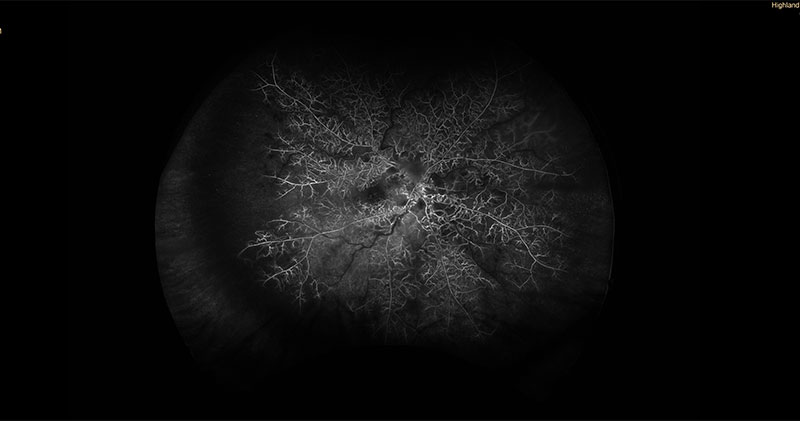 CRVO Fluorescein Angiography 2
CRVO Fluorescein Angiography 2
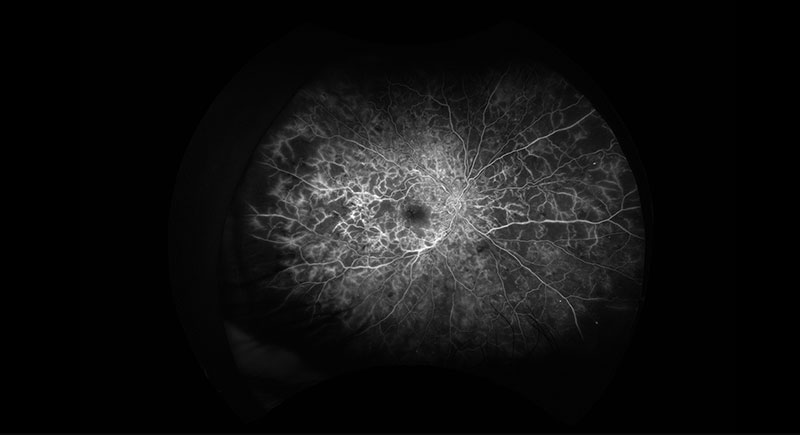 CRVO Fluorescein Angiography 3
CRVO Fluorescein Angiography 3
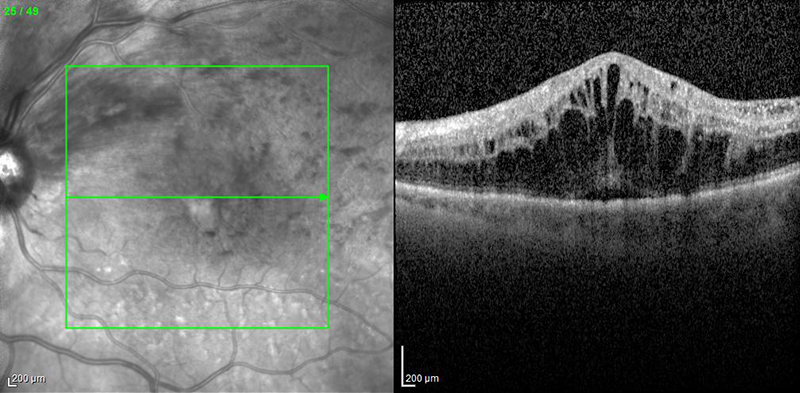 OCT of branch retinal vein occlusion with macular edema
OCT of branch retinal vein occlusion with macular edema
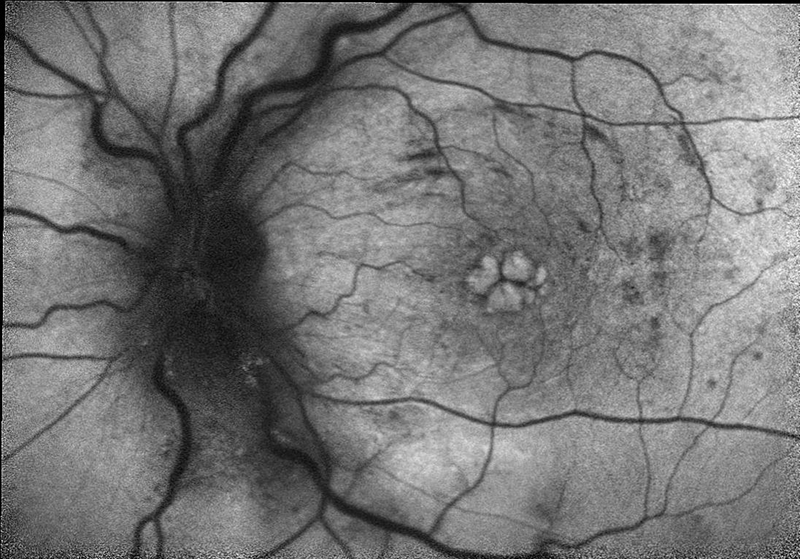 autofluorescence fundus photo of central retinal vein occlusion with macular edema
autofluorescence fundus photo of central retinal vein occlusion with macular edema
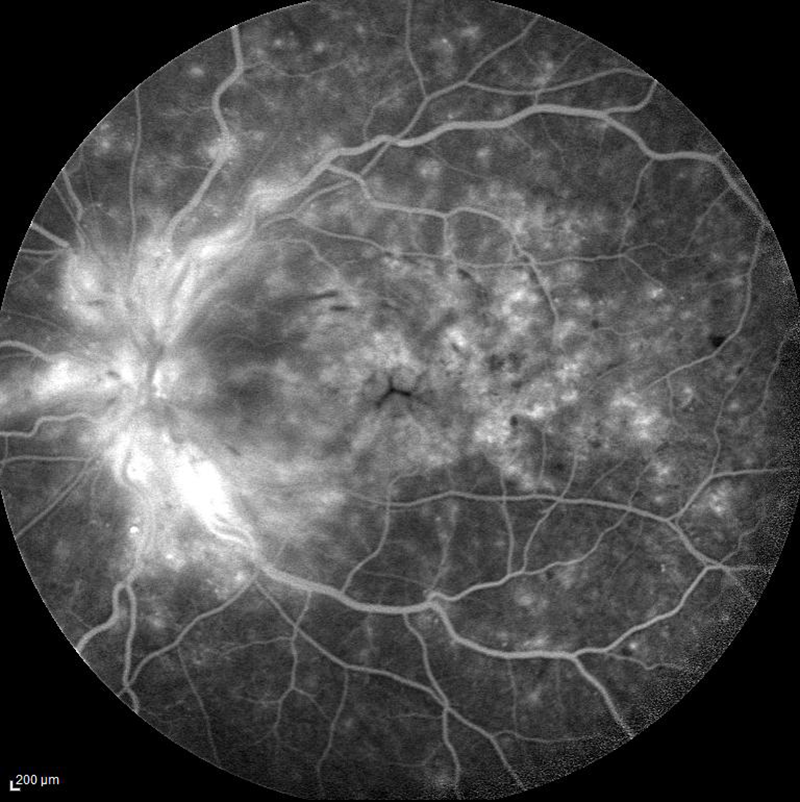 fluorescein angiogram of central retinal vein occlusion
fluorescein angiogram of central retinal vein occlusion
What is a Retinal Vein Occlusion?
The retina is a specialized layer of neural tissue that coats the back of the eye and is responsible for helping you to see. A retinal vein occlusion occurs when blood flow in one of the veins draining blood from the retina is reduced or blocked. If the blood that enters the eye cannot be drained properly through the blocked vein, the blood will back up in the retina creating areas of bleeding and swelling. This bleeding, swelling, and lack of oxygen in the retina can lead to vision loss.
What causes a Retinal Vein Occlusion and who is at risk?
There are many different causes for a retinal vein occlusion, and causes vary between patients. The cause of a Retinal Vein Occlusion may be discovered thorough an evaluation of the retina or a general medical evaluation; however, the cause is not always identifiable. This condition most commonly occurs in individuals greater than 50 years old. Additionally, several diseases can increase the risk of developing a Retinal Vein Occlusion, including high blood pressure, diabetes, heart disease, blood clotting disorders and glaucoma.
Are there different types of Retinal Vein Occlusions?
There are two major categories of retinal vein occlusions, branch and central retinal vein occlusions. Like the arterial drainage system, the venous drainage system for removing blood from the eye can be compared to a tree with many small branches draining into larger ones and ultimately into one central retinal vein (the tree trunk). In a branch retinal vein occlusion (BRVO) a small branch of the retinal venous system becomes blocked, while central retinal vein occlusion (CRVO) is characterized by a blockage in the primary trunk of the vein.
What are the symptoms of a Retinal Vein Occlusion?
The symptoms of Retinal Vein occlusion depend on the size and location of the blockage. Most patients note a painless, sudden distortion of vision that can be associated with a blind spot.
How is a Retinal Vein Occlusion diagnosed?
Your retina specialist can diagnose a vein occlusion by examining your eye and using specialized testing, such as an optical coherence tomography (OCT) and fluorescein angiogram, to confirm the diagnosis. A fluorescein angiogram is a specialized dye test that can be used to identify the location and extent of blood flow blockage. An OCT is used to obtain a high-resolution anatomic scan of the retinal structure, and it is useful in evaluating swelling and response to treatment.
What are the complications of Retinal Vein Occlusions?
The two most common complications of Retinal Vein Occlusion are Macular Edema and neovascularization. Macular edema (swelling) is caused by the leakage of small retinal blood vessels after a vein occlusion. Neovascularization is caused by a lack of oxygen to the retina. These new blood vessels cause problems when they start to bleed and can ultimately lead to glaucoma or adverse changes in your eye health. Left untreated, these changes can result in irreversible blindness.
How is a Retinal Vein Occlusion treated?
There is no known cure for retinal vein occlusion; however, good control of your diabetes, high blood pressure, or glaucoma, if present, is very important in caring for your eye and preventing further damage to your vision. The current focus of treatment for retinal vein occlusion is to treat the known complications of retinal vein occlusions such as macular edema and neovascularization. Both macular edema and neovascularization are treated with intraocular injections, laser surgery, or rarely surgery.
What is the prognosis?
The prognosis is specific to the patient and depends on the extent of damage from the vein occlusion. Fortunately, many patients can expect to regain good vision. However, some will have poor vision due to loss of blood supply or retinal damage from chronic swelling. Your retina specialist can talk with you more about your individual prognosis.